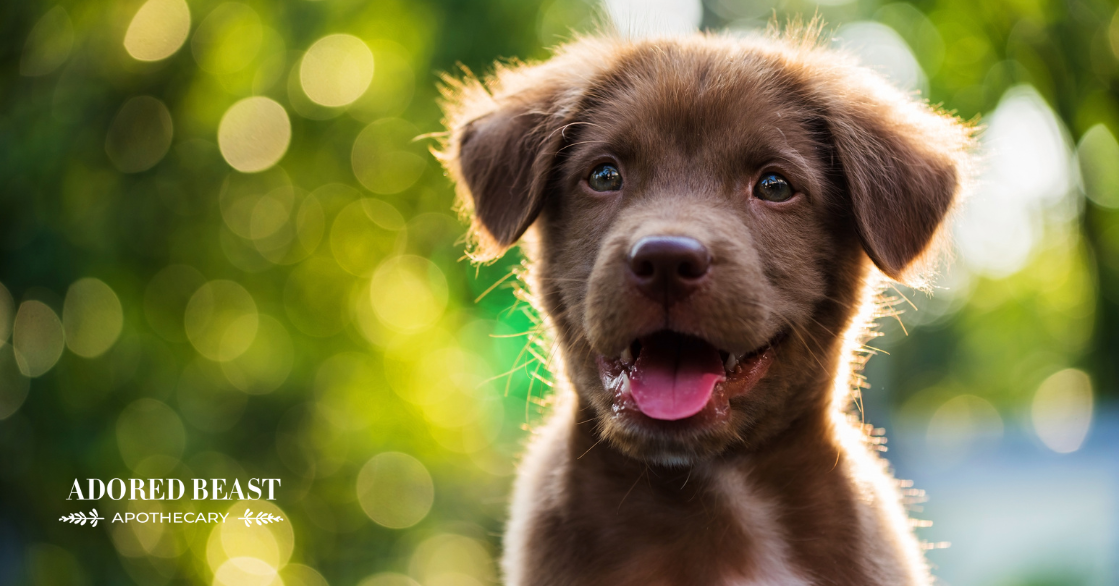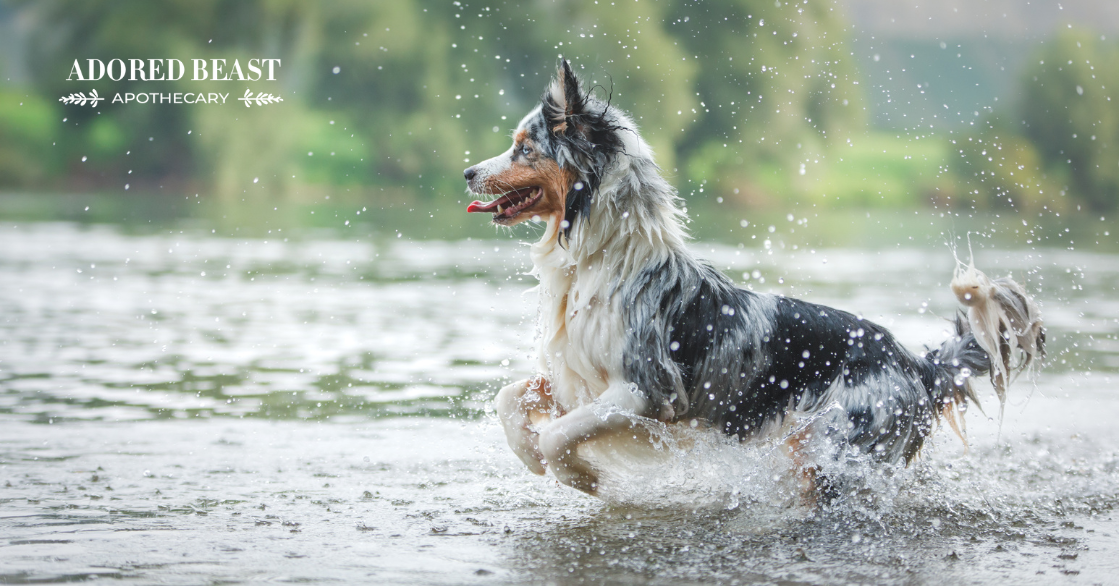If you’ve ever noticed your dog making little hiccup sounds, you might wonder what’s causing them – and if there’s anything to worry about.
Just like humans, dogs can get hiccups, and most of the time, they’re completely harmless. However, it’s always good to know what might be behind these dog hiccups, how to reduce them, and when it might be time to check in with your vet.
Why Do Dogs Get Hiccups?
Hiccups in dogs (and humans) happen when the diaphragm – a muscle that helps control breathing – contracts involuntarily. This causes a sudden intake of air, which is cut off by the vocal cords, creating that familiar “hic” sound. While this can seem odd or amusing, there are several common reasons why dogs, especially puppies, might get hiccups:
- Eating or Drinking too Fast: Dogs who gobble up their food or water in a hurry often swallow a lot of air, which can lead to hiccups. This is especially common in puppies who are still learning how to pace themselves.
- Excitement or Play: Just like humans, dogs can get hiccups when they’re overly excited or playful. This heightened energy level can cause their breathing to become irregular, leading to hiccups. Our newest addition, Jones, gets them sometimes after rigorous play!
- Stress or Anxiety: Emotional factors, such as stress or anxiety, can cause rapid breathing in dogs, which may trigger hiccups. If your dog is nervous or overstimulated, they might start to hiccup as their body reacts.
- Temperature Changes: Sudden changes in temperature – like drinking cold water after playing in the sun – can sometimes trigger hiccups in dogs. The shift in body temperature might cause the diaphragm to contract.
- Growth Spurts in Puppies: Puppies tend to experience hiccups more frequently than adult dogs. This is partly because their bodies are still developing, and the nervous system that controls the diaphragm is not yet fully matured.
When are Dog Hiccups Nothing to Worry About?
In most cases, dog hiccups are completely harmless and will go away on their own after a few minutes. Occasional hiccups are simply a normal bodily function, especially in puppies. Here’s when you can breathe easy:
- Short Duration: If your dog’s hiccups only last a few minutes and happen occasionally, it’s usually nothing to worry about.
- No Other Symptoms: If your dog seems otherwise happy, healthy, and playful, then their hiccups are likely just a minor amusement.
As mentioned, hiccups in dogs tend to be more common in puppies because their bodies are still developing, but even adult dogs can have harmless hiccup episodes from time to time.
When to Check with Your Vet
While dog hiccups are usually no cause for concern, there are a few situations where they might indicate something more serious. Here’s when you should consider contacting your vet:
- Persistent Hiccups: If your dog’s hiccups last for an extended period (over an hour), or if they occur frequently over several days, it’s worth checking with your vet to rule out any underlying issues.
- Difficulty Breathing: If your dog seems to struggle with breathing or is wheezing alongside the hiccups, this could indicate a more serious problem, such as respiratory distress or asthma.
- Other Unusual Symptoms: If your dog experiences other concerning symptoms, like coughing, vomiting, excessive drooling, or changes in appetite, it’s a good idea to seek veterinary attention. These could be signs of gastrointestinal issues, respiratory infections, or more serious underlying conditions.
- Gastrointestinal Concerns: In rare cases, persistent hiccups in dogs could be related to gastrointestinal issues, such as acid reflux or digestive problems. If your dog seems uncomfortable, consult your vet for advice.
How to Reduce Dog Hiccups
If your dog seems to be getting hiccups frequently, there are a few things you can do to help reduce them and make your dog more comfortable:
- Slow Down Mealtime: If your dog tends to eat or drink too quickly, try using a slow-feeder bowl or lick mat to slow them down. This will help reduce the amount of air they swallow, which can prevent hiccups.
- Encourage Calm Breathing: If your dog is excited or stressed, try to calm them down by offering a quiet, soothing environment. Gentle petting or giving them a favourite toy can help slow their breathing and stop the hiccups.
- Offer Water: Giving your dog a small amount of room-temperature water can help soothe their diaphragm and stop the hiccups. Be sure the water isn’t too cold, as sudden temperature changes could make things worse.
- Take a Break from Play: If your dog gets hiccups after running around or playing energetically, give them a break to rest. A few minutes of calm can help their diaphragm relax and stop the hiccups.
- Avoid Overfeeding: If your dog tends to overeat, reduce their portion sizes or feed them smaller meals throughout the day to avoid distending the stomach, which can lead to hiccups.
Dog hiccups are usually just a quirky, harmless occurrence, especially for playful puppies who are still learning how to control their breathing. However, it’s always a good idea to keep an eye on the duration and frequency of the hiccups, as well as any additional symptoms that could indicate something more serious. If in doubt, your vet can always provide peace of mind.
In the meantime, if your dog gets the occasional case of hiccups, try some of the tips above to reduce them and get your pup back to their usual happy self!












